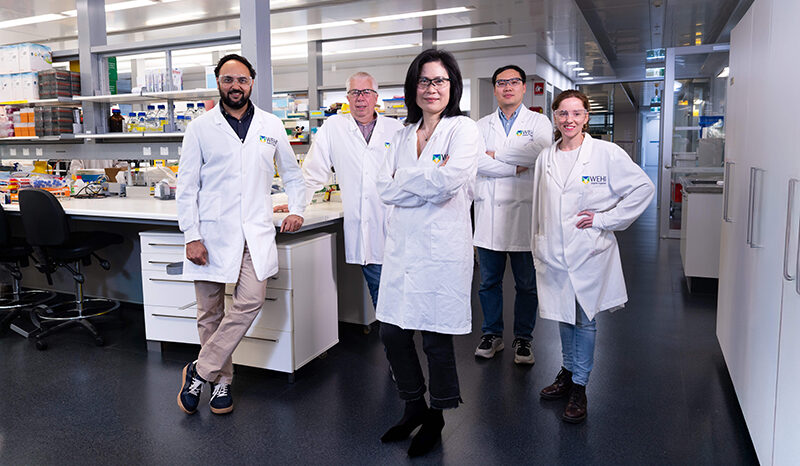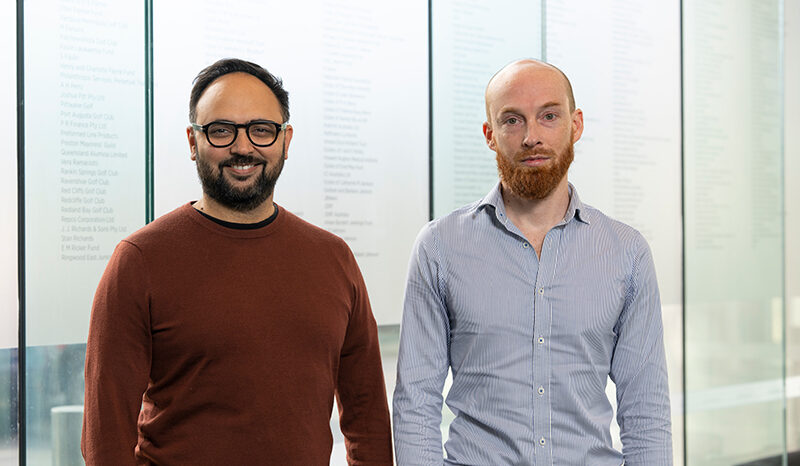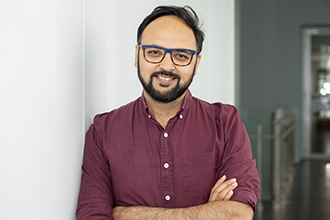Ashayeripanah M, Coughlan H, Zhang S, Yan J, Bandala-Sanchez E, Jenika D, Lin D, Tullett KM, Naik SH, Groom JR, Lahoud MH, Belz GT, Huntington ND, Smyth GK, Nutt SL, Chopin M. Interleukin 4 selectively expands functional type 1 conventional dendritic cells from bone marrow progenitors. Cell Reports. 2026;45(1):10.1016/j.celrep.2025.116772
Lewis SM, Berthelet J, Whitehead LW, Rajasekhar P, El-Saafin F, Bell C, Naik S, Merino D, Wimmer VC, Rogers KL. LeGO-3D: 3D imaging of lung metastases and vascularisation using light sheet fluorescence microscopy. npj Imaging. 2025;3(1):10.1038/s44303-025-00111-0
Perriman L, Tavakolinia N, Jalali S, Li S, Hickey PF, Amann-Zalcenstein D, Ho WWH, Baldwin TM, Piers AT, Konstantinov IE, Anderson J, Stanley EG, Licciardi PV, Kannourakis G, Naik SH, Koay H-F, Mackay LK, Berzins SP, Pellicci DG. Unconventional T cell development in the human postnatal thymus 2829. The Journal of Immunology. 2025;214(Supplement_1):10.1093/jimmun/vkaf283.709
Naik S, Tomei S, Zhang S, Lin M, Audiger C, Weber T. 1025 – THE HIDDEN PREDICTORS OF HUMAN HEMATOPOIETIC CLONAL DESTINY. Experimental Hematology. 2025;151:10.1016/j.exphem.2025.104905
Weber TS, Biben C, Miles DC, Glaser SP, Tomei S, Lin C-Y, Kueh A, Pal M, Zhang S, Tam PPL, Taoudi S, Naik SH. LoxCode in vivo barcoding reveals epiblast clonal fate bias to fetal organs. Cell. 2025;188(14):10.1016/j.cell.2025.04.026
O’Keeffe P, Nouri Y, Saw HS, Moore Z, Baldwin TM, Olechnowicz SWZ, Jabbari JS, Squire DM, Leslie S, Wang C, You Y, Ritchie ME, Cross RS, Jenkins MR, Audiger C, Naik SH, Whittle JR, Freytag S, Best SA, Hickey PF, Amann-Zalcenstein D, Bowden R, Brown DV. TIRE-seq simplifies transcriptomics via integrated RNA capture and library preparation. Scientific Reports. 2025;15(1):10.1038/s41598-025-98282-8
Tran VL, Haltalli MLR, Li J, Lin DS, Yamashita M, Naik SH, Rothenberg EV. Ever-evolving insights into the cellular and molecular drivers of lymphoid cell development. Experimental Hematology. 2024;140:10.1016/j.exphem.2024.104667
Stonehouse OJ, Biben C, Weber TS, Garnham A, Fennell KA, Farley A, Terreaux AF, Alexander WS, Dawson MA, Naik SH, Taoudi S. Clonal analysis of fetal hematopoietic stem/progenitor cells reveals how post-transplantation capabilities are distributed. Stem Cell Reports. 2024;19(8):10.1016/j.stemcr.2024.07.003
Audiger C, Laâbi Y, Nie J, Gibson L, Wilson-Annan J, Brook-Carter P, Kueh A, Harris AW, Naik S, Nutt SL, Strasser A, Adams JM, Bouillet P, Chopin M. Mis-expression of GATA6 re-programs cell fate during early hematopoiesis. Cell Reports. 2024;43(5):10.1016/j.celrep.2024.114159
Brown DV, Anttila CJA, Ling L, Grave P, Baldwin TM, Munnings R, Farchione AJ, Bryant VL, Dunstone A, Biben C, Taoudi S, Weber TS, Naik SH, Hadla A, Barker HE, Vandenberg CJ, Dall G, Scott CL, Moore Z, Whittle JR, Freytag S, Best SA, Papenfuss AT, Olechnowicz SWZ, MacRaild SE, Wilcox S, Hickey PF, Amann-Zalcenstein D, Bowden R. A risk-reward examination of sample multiplexing reagents for single cell RNA-Seq. Genomics. 2024;116(2):10.1016/j.ygeno.2024.110793






